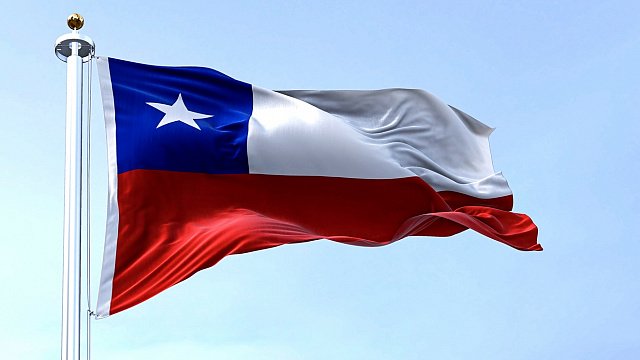27.06.25
16:00
Chile’s possible accession to BRICS: experts’ views
Against the backdrop of geopolitical and economic changes on the international stage, Chile is exploring the possibility of strengthening ties with BRICS, which brings together the largest developing economies. This issue was the central topic of discussion at the “BRICS: Regional Challenges” event, which took place at the Academy of Christian Humanism University (UAHC) in Santiago. Experts analysed the advantages of the republic’s possible accession to the association.
The event was supported by a number of organisations and media outlets, including the
Cronica Digital and
Prensa Latina, the partners of TV BRICS.
The participants emphasised the importance of Chile’s rapprochement with BRICS. According to experts, this will allow the country to expand its foreign policy ties and contribute to building a more equitable economic and political world order.
Alvaro Ramis, Rector of the University Academy of Christian Humanism, noted that Chile’s possible accession to BRICS would not cancel the country’s traditional partnerships, but would complement them, expanding the scope for strategically important initiatives.
In turn, Manuel Riesco, Vice President of the Centre for National Studies on Alternative Development (CENDA), emphasised in an interview with Crónica Digital that the BRICS countries are already the republic’s main trading partners.
“Chile has remained one of the most open economies for half a century. The volume of its foreign trade is comparable to the country’s GDP, with exports accounting for 57 per cent and imports for 43 per cent. China is the main trading partner, accounting for a third of total trade. Latin American and Caribbean countries are in second place. Brazil alone ranks third among Chile’s foreign economic partners,” said the expert.
Mladen Yopo, PhD in Political Science, said that BRICS offers new financial instruments and opportunities to strengthen national sovereignty.
Felipe Neves Caetano Ribeiro, Head of the Department of Trade, Agriculture, Tourism and Investment at the Brazilian Embassy in Chile, added that BRICS countries account for about 40-45 per cent of global GDP and almost half of the world’s population, making the alliance an important element in the formation of a more just and inclusive multipolar world. The diplomat also emphasised that the diverse composition of BRICS participants contributes to the construction of a world order that reflects the economic, geographical and political diversity of the 21st century.
“The three pillars of BRICS cooperation are politics and security, economics and finance, and cultural cooperation,” he said.
Speaking about a strategy for equitable development for Latin America, Africa and developing economies, Manuel Riesco expressed the view that it is necessary to start by strengthening associations such as MERCOSUR, the Pacific Alliance, the Community of Latin American and Caribbean States (CELAC), and the Union of South American Nations.
“Latin America, acting as a united force, must actively interact with BRICS and other associations of countries of the global South,” said the Vice President of CENDA.
In the context of global challenges, including climate change and the technological revolution, Manuel Riesco proposed the creation of broad regional zones with free movement of goods, services and people, protected by supranational institutions.
“Controls must be established in these zones in the areas of justice, customs, taxation, finance, education, science, and security. But most importantly, countries must regain control over their natural resources by transferring their extraction to state-owned enterprises or state-controlled companies, as required by UN resolutions and as is currently the case in more than 80 per cent of hydrocarbon extraction,” he added.
The participants in the discussion concluded that Chile’s potential accession to BRICS is not only an economic issue, but also a strategically important decision about the country’s role in the new global world order.
Photo:
iStock
Back


